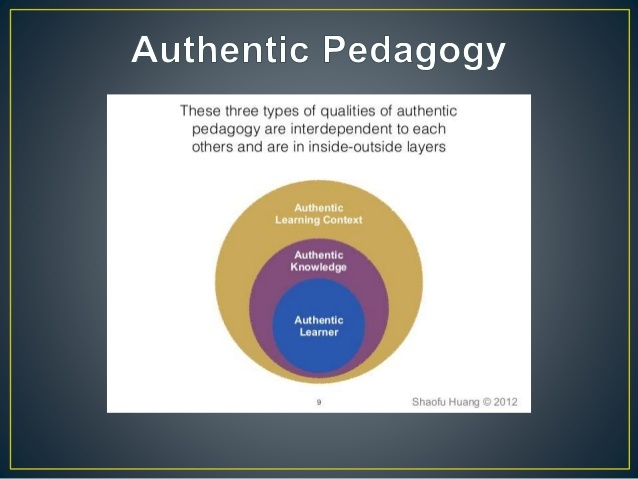e-Learning Ecologies MOOC’s Updates
Authentic pedagogy
Authentic pedagogy or Authentic learning is instruction and assessment, which promotes authentic student achievement, as defined by Jaser. Another definition by Wikipedia defines it as, an instructional approach that allows students to explore, discuss, and meaningfully construct concepts and relationships in contexts that involve real-world problems and projects that are relevant to the learner. The last part of that definition explains the use of the term Authentic. Authentic describes the trueness to the learner, interest of the learner, and quality of the learning.
One of the best quotes embodying Authentic pedagogy was by Jean-Jaques Rousseau stating, “Teach your scholar to observe the phenomena of nature; you will soon rouse his curiosity, but if you would have it grow, do not be in too great a hurry to satisfy this curiosity. Put the problems before him and let him solve them himself. Let him know nothing because you have told him, but because he has learnt it for himself. Let him not be taught science, let him discover it. If ever you substitute authority for reason he will cease to reason; he will be a mere plaything of other people’s thoughts.”
The framework for authentic pedagogy revolves around the learner. For this reason, the context of authentic pedagogy can fluctuate, but the goal is for the learner to gain authentic knowledge.
One example of this method of learning is the Montessori school structures. They were created by Maria Montessori with the intention of the child learning through discovery and free learning. This example and others can be found in the below video by Professor Cope.
The best example of this type of learning is referenced in this week’s videos when Professor Cope mentions the difference between a test on volcanoes and a project on volcanoes. The project on volcanoes is an example of Authentic pedagogy. The student gets to invest in learning with interest and with real experience. By asking questions about the project and about the volcanoes, the student starts to develop the idea, and by researching the student acquires the knowledge they are seeking. The project, in the end, displays the quality of the learning for the student.
References:
https://blogs.lt.vt.edu/janos/2012/02/29/what-is-authentic-pedagogy/
https://en.wikipedia.org/wiki/Authentic_learning
https://youtu.be/5V8GYXKesso


